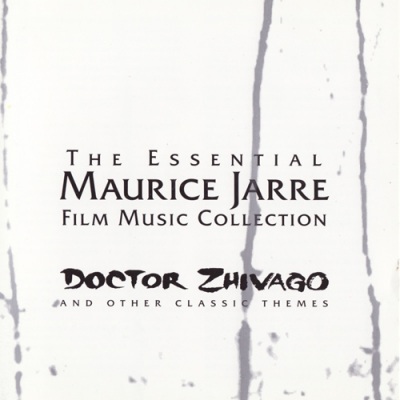
The Essential Maurice Jarre Film Music Collection
The Silva label has issued a number of recordings of the film score music of Maurice Jarre, notably the excellent 1989 album Lawrence of Arabia, performed by the Philharmonic Orchestra conducted by Tony Bremner. This double-CD compilation album draws upon those recordings to create an extensive sampler of Jarre's film music, usually arranged and orchestrated into suites. Twenty-three of Jarre's scores are represented, and, while necessarily, there are extended excerpts from the composer's two most famous works, Lawrence of Arabia (culled from the Philharmonic Orchestra disc) and Doctor Zhivago, the range of writing is quite broad. Jarre may be remembered for the austere beauty of the Lawrence theme and the lush melodiousness of "Lara's Theme" from Zhivago, but this collection reveals him to be an adaptable composer capable of evoking swing music in "Adela's Theme" for A Passage to India and convincing John Philip Sousa-style march music in Topaz. If there is one element that filmmakers have tended to look to Jarre for, it is a sense of the exotic, and he has given it to them consistently, whether in the Mexican sounds of Villa Rides or the spare Oriental music of The Year of Living Dangerously. He is also one of the few composers of his generation to have wholeheartedly embraced synthesizers, and the work of Mark Ayres, who has adapted music from such films as The Mosquito Coast, No Way Out, and Enemy Mine, is particularly striking here. But the real finds on the album are some of the themes that recall the beauty of Jarre's best-known scores, notably the "Building the Barn" sequence in Witness, originally done by a synthesizer ensemble, and here presented in both synthesized and orchestral versions, and an orchestral version of the originally synthesized theme from Fatal Attraction. Jarre is not always inspired; some of the music here is only serviceable, some noticeably similar to the work of other composers. (The music from El Condor, for example, is a little too close to the style of Ennio Morricone in the Sergio Leone spaghetti Westerns.) But the best of his work both carries his personal stamp and evokes the films for which it was written, confirming the composer's reputation as one of the great film composers of the 1960s and '70s.
